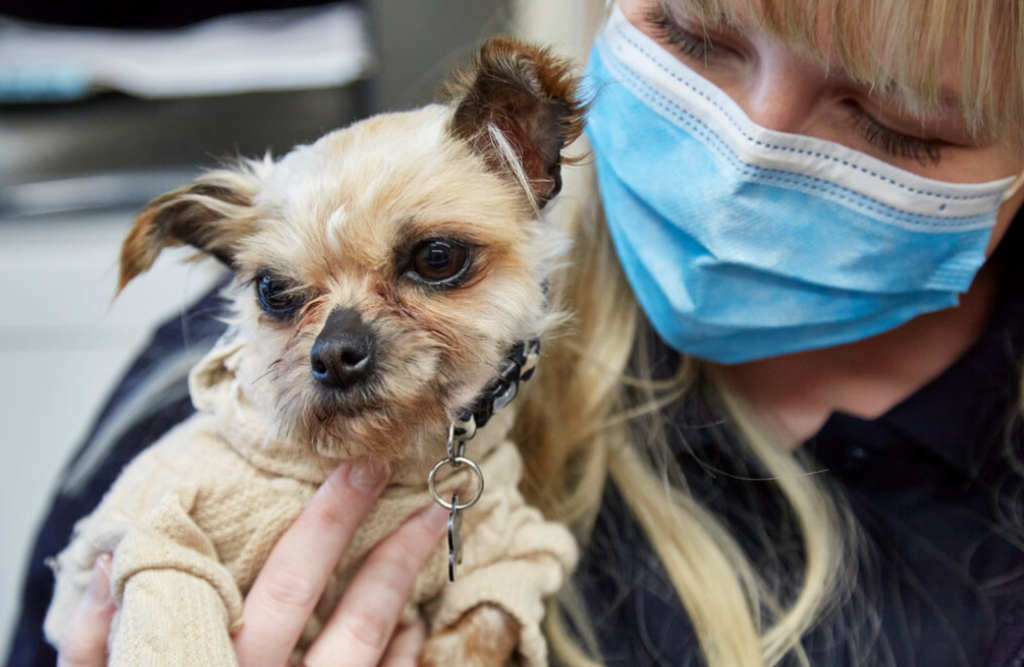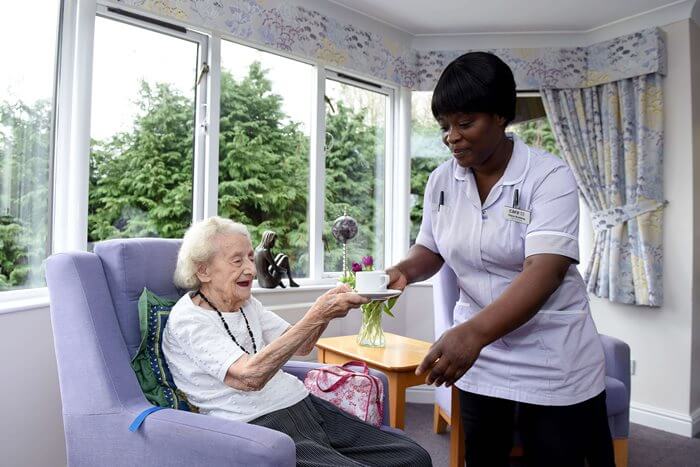Charity
RSPCA reports highest number of abandonments since pandemic

Animal welfare crisis ‘still felt on huge scale’ five years after first lockdown
FIVE years on from the first UK lockdown, the RSPCA says the legacy of the Covid-19 pandemic continues to have a profound impact on animal welfare — with record levels of abandonment and rising concerns over pet care.
The charity says it is still dealing with the fallout from an increase in impulse pet purchases during lockdown, limited socialisation opportunities for young animals, and the ongoing cost of living crisis — all of which have placed “enormous challenges” on pets, owners, and rescue services.

Abandonment at record high
Last year, the RSPCA received 22,503 reports of animal abandonment — the highest annual figure since the pandemic began.
With rescue centres stretched beyond capacity, the charity is currently paying for 1,220 animals to be housed in private boarding while they wait for a space at one of its facilities.
Dr Samantha Gaines, Head of Companion Animals at the RSPCA, said: “While many pets found amazing new homes during the pandemic, we know not all animals were so lucky.
“The boredom of lockdown, and people’s temporarily changed lifestyles — including increased loneliness — may have led to a surge in impulse pet purchases. Sadly, as the reality of veterinary bills, behavioural issues, and juggling care with work set in, some owners were no longer willing or able to cope, and in some cases turned to extreme measures like abandonment.”
She added: “Five years on from that first lockdown announcement, the impact for animals is still being felt on a huge scale.”
Behavioural and health concerns
The effects of lockdown restrictions were not limited to abandonment. Routine veterinary care — including neutering, microchipping, and health check-ups — was often delayed, and vital socialisation opportunities for young pets were missed.
Between April 2023 and March 2024, there were 44,900 Google searches in the UK for “Can I give my dog paracetamol?”, raising concerns that more people are turning to self-treatment rather than seeking professional advice.
Dr Gaines explained: “Socialisation and structured training are critical for young dogs, but during lockdown, puppy classes and group activities were unavailable. We are now seeing the behavioural issues that resulted from that, and many owners are struggling.”
The charity also urged local councils during the pandemic to ease Public Spaces Protection Orders to help people access walking areas, but long-term issues around accessing and affording care have persisted.
“With vets halting non-urgent procedures during the pandemic, some owners may have become used to skipping appointments or trying to self-prescribe — especially now with the cost of living so high,” said Dr Gaines.
Cost of living pressures
The cost of living crisis, which experts say was exacerbated by the pandemic, continues to impact pet owners.
According to the RSPCA’s Animal Kindness Index:
- 36% of pet owners changed their behaviour due to financial pressure in the past year.
- 15% said they regretted owning a pet in 2024.
- 78% said it is now more expensive to care for their animals.
Dr Gaines said: “The crisis has been one of the most challenging events for companion animal welfare in recent memory. We’ve created a cost of living support hub and expanded our Pet Food Bank scheme — but it’s still incredibly tough for many families.”
Changing attitudes among younger people
The RSPCA also expressed concern over shifting attitudes towards animals, particularly among younger people.
The Animal Kindness Index found those aged 18-24 were:
- Less likely to identify as animal lovers (57% compared to 68% overall),
- More likely to accept dressing up animals for fun (33% vs. 16%),
- More tolerant of breeding animals with genetic health issues (14% vs. 7%),
- More accepting of animals being used in TV entertainment (23% vs. 16%).
Pandemic chicken trend turns sour
The impact has also extended beyond pets. Poultry ownership saw a brief spike during the pandemic, with many households taking on chickens as a “lockdown fad.” However, the RSPCA has since received reports of chickens being abandoned as the novelty wore off.
Beth Winspear, from the charity’s farm animals team, said: “Chickens can make wonderful companions, but some owners didn’t realise the level of care needed. Sadly, some birds were simply abandoned.”
Encouraging people to make compassionate food choices has also become more difficult as households cut costs.
“Despite economic pressures, we’re still seeing strong support for higher welfare meat, eggs, and dairy,” said Ms Winspear. “Two-thirds of consumers say they try to buy higher welfare produce, and sales of RSPCA Assured products continue to grow. Even small swaps can make a real difference.”
Signs of hope
Despite the challenges, the RSPCA believes that “people power” can help create a kinder future for animals.
Polling shows 68% of Brits consider themselves animal lovers, and many are taking action to help — from adopting rescue pets to supporting campaigns and sharing animal welfare advice.
Dr Gaines said: “While it’s been a tough five years for animals, there are so many ways people can make a positive difference. From volunteering to backing campaigns and choosing rescue pets, we can create a world where all animals are treated with compassion.”
The charity is also urging members of the public to take part in its consultation on the future of animal welfare.
Animal Futures: The Big Conversation invites people to share their vision for a better world for animals and humans alike. More information is available on the RSPCA website.
Let me know if you’d like a shortened version for web or a radio script version too.
Charity
Angle RNLI launch to stricken yacht in 42-knot gale as skipper swept overboard

Lifeboat crew battle six-metre seas after lone sailor loses engine, sail and takes on water west of Skokholm
ANGLE RNLI lifeboat volunteers carried out a dramatic rescue after responding to a broken Pan Pan call from a 28ft yacht in severe conditions, with winds gusting to 42 knots and waves reaching up to six metres.
At 10:56am on Tuesday (Feb 3), the crew were already afloat on a navigation pass-out exercise in Dale Roads when they overheard the distress transmission from a yacht west of Skokholm Island. Moments later, HM Coastguard tasked the lifeboat to respond while further information was gathered.
While making best speed to the scene, the crew were told the yacht, carrying one person, had suffered engine failure, blown out its sail and was taking on water from an unknown source.
The casualty vessel was located around three miles west of the island. After assessing the situation, the crew decided conditions were too dangerous to place a lifeboat volunteer aboard, and the safest option was to establish a tow.

With a south-easterly gale and a very rough sea state, the tow was rigged and the yacht began a slow passage towards Milford Haven.
However, shortly after the tow commenced, a large wave threw the skipper overboard. Although tethered to the yacht by his safety harness, he was dragged alongside the vessel in the heavy swell.
The lifeboat crew immediately released the tow and began recovery operations. With the towline fouling access on one side and the casualty trapped on the other, a crew member was eventually placed aboard the yacht over its bow. The skipper’s harness was cut, allowing him to drift clear, before he was safely recovered from the water by the lifeboat.
With the priority now the sailor’s welfare, and the risks of re-establishing the tow judged too great, the crew member was brought back aboard and the lifeboat returned to harbour.
On arrival, volunteers from the Dale Coastguard Rescue Team assisted with casualty care and gathered the necessary details.
The lifeboat was stood down and made ready for further service by 2:30pm.
The station also thanked the The Lord Nelson Hotel for accommodating the sailor at short notice.
A spokesperson for Angle RNLI said the incident highlighted both the speed at which conditions can deteriorate at sea and the importance of safety equipment such as harnesses and tethers.
Charity
Age Cymru urges action on hidden crisis facing older people ahead of Senedd election

Charity warns one in three over-50s struggling with costs, healthcare delays and digital exclusion
AGE CYMRU has launched a manifesto calling on political parties to tackle what it describes as “the crisis people don’t see” facing older people across Wales ahead of the Senedd elections in May.
The national charity for older people says rising living costs, pressure on NHS and care services, poor transport links and digital exclusion are leaving many pensioners struggling day-to-day and feeling increasingly isolated.
By 2030, more than 1.3 million people in Wales will be aged over fifty – around forty per cent of the population.

But despite making up a growing share of the country, the charity says too many older people are being “pushed to the margins”.
Age Cymru’s annual survey found nearly half (46%) of older people struggled with the cost of living in the past year, with sixty-two per cent cutting back on essentials such as heating and food.
Access to healthcare is also deteriorating. Half of respondents said they had difficulty securing GP appointments, with waits of four weeks or more now common. More than half of those seeking social care described the process as difficult or very difficult.
Digital exclusion is another growing concern. Thirty-one per cent of people aged over seventy-five in Wales have no internet access at home – roughly double the UK average – meaning many cannot easily access services that have moved online.
Manifesto demands
The charity is calling on the next Welsh Government to deliver seven key changes:
• Easier access to health services
• Timely, quality social care
• Action on pensioner poverty
• Reliable public transport
• Stronger community connections and Equality Act compliance
• Offline access to services for those without digital skills
• Support to keep homes warm
Real lives affected
For Terry Lemington, 72, from South Wales, the problems are personal.
While caring for his late wife, he said he was unaware of support he could have received until just ten weeks before she died.
“It wasn’t until ten weeks before my wife passed away that I was told I could have had additional support to help me care for her,” he said.
“That included a stairlift, which in the end was due to be fitted on the day she passed away. I just wasn’t aware of the support that was available.”
Terry, who does not drive, says limited bus services leave him cut off.
“There are hourly buses to larger towns and a small village bus, but they finish at mid-day on Saturday and there is nothing on Sunday. I’m completely cut off,” he added.
“Right now it feels like older people are pushed to the margins. But we still have so much to contribute.”
Economic impact
Victoria Lloyd, Chief Executive of Age Cymru, said the issue was not only moral but economic.
“These stories are sadly all too common,” she said.
“Older people contribute around £2 billion a year to the Welsh economy, whether through paid work, childcare for families or volunteering.
“Investing in the health and wellbeing of older people is an investment in Wales as a whole.”
She added that while the Welsh Government’s Age Friendly Wales strategy had made progress, more decisive action was needed.
“We’re calling on all parties seeking votes this year to read our manifesto and ensure older people are properly considered in their policies and promises.”
Charity
Vincent Davies raises £13,682 for air ambulance charity

Independent Haverfordwest store backs lifesaving crews with year of community fundraising
A WEST WALES department store has raised more than thirteen thousand pounds for a lifesaving emergency service after a packed year of community fundraising.
Staff at Vincent Davies Department Store collected £13,682 for the Wales Air Ambulance Charity, after voting the organisation their Charity of the Year for 2025.
The independent retailer organised events throughout the year, including an Easter bingo, bake sales, quizzes, raffles, staff sales, Christmas jumper days and a festive wreath-making workshop. Charity jam jars placed in Café Vincent also helped gather steady donations from customers.
One of the most popular attractions was the store’s charity singing penguin trio, which drew smiles from shoppers of all ages and boosted collections.
Sarah John, Joint Managing Director at Vincent Davies, said: “Raising £13,682 for the Wales Air Ambulance Charity is something we are extremely proud of at Vincent Davies Department Store. As a director, it’s wonderful to see our community come together to support a charity that makes such a lifesaving difference.”
The air ambulance is consultant-led, delivering hospital-level treatment directly at the scene of serious incidents and, when needed, transferring patients straight to the most appropriate specialist hospital.
Working in partnership with the NHS through the Emergency Medical Retrieval and Transfer Service, crews can provide advanced critical care including anaesthesia, blood transfusions and even minor surgical procedures before reaching hospital.
Operating across the whole of Wales, its teams travel the length and breadth of the country by helicopter and rapid response vehicle to reach patients quickly in both rural and urban areas.
This is not the first time the Haverfordwest store has backed the cause. In 2016, staff previously raised £5,831 when the charity was also chosen as their beneficiary.
Mike May, the charity’s West Wales Regional Fundraising Manager, said: “We are so grateful to Vincent Davies Department Store for raising an incredible amount for our charity. Throughout the year they put on a variety of different events and what a successful fundraising year it was.
“The charity needs to raise £13 million every year to keep our helicopters in the air and our rapid response vehicles on the road. By raising £13,682, the staff and customers have played an important part in saving lives across Wales.”
The store says it will announce its Charity of the Year for 2026 in the coming weeks.
-

 Health7 days ago
Health7 days agoConsultation reveals lack of public trust in health board
-

 Crime17 hours ago
Crime17 hours agoSex offender jailed after living off grid in Pembrokeshire and refusing to register
-

 News2 days ago
News2 days agoPrincess of Wales visits historic Pembrokeshire woollen mill
-

 Crime6 days ago
Crime6 days agoPembroke man accused of child sex offences sent to Swansea Crown Court
-

 Health4 days ago
Health4 days agoDoctor struck off after sexual misconduct findings at Withybush Hospital
-

 Community6 days ago
Community6 days ago50s women threaten legal action over pension compensation refusal
-

 Business7 days ago
Business7 days agoEight-year prison sentence after vehicle stop uncovers drugs worth over £150,000
-

 Crime2 days ago
Crime2 days agoHakin man’s appeal delayed again as Crown Court seeks guidance on insurance law



























